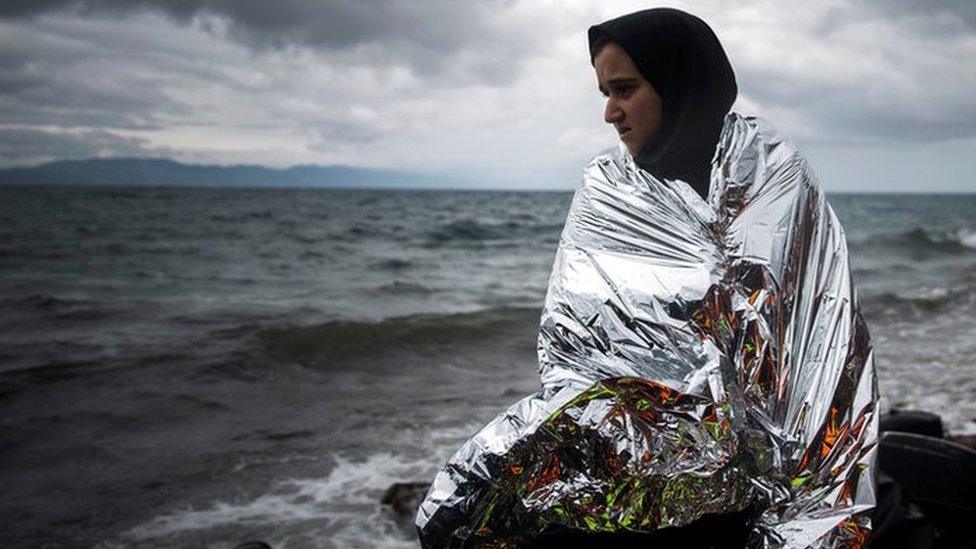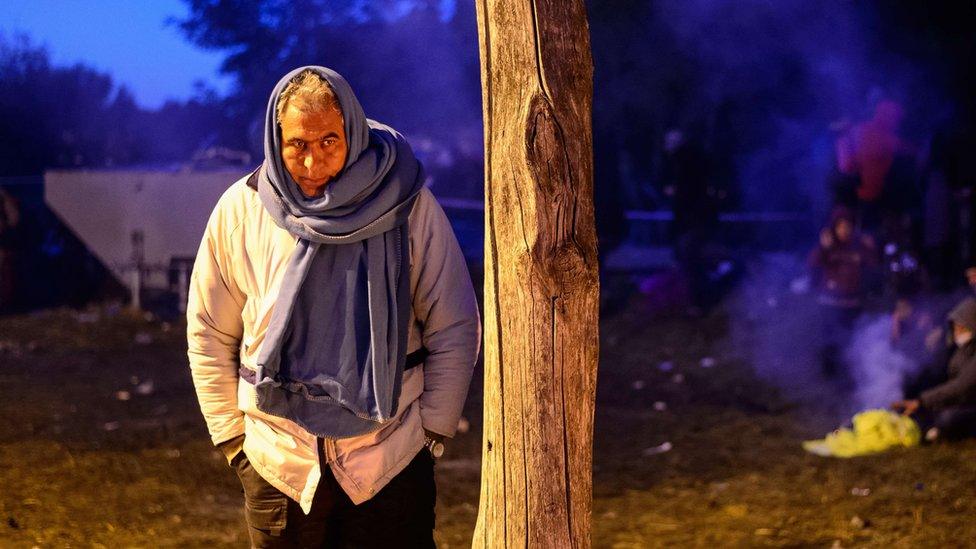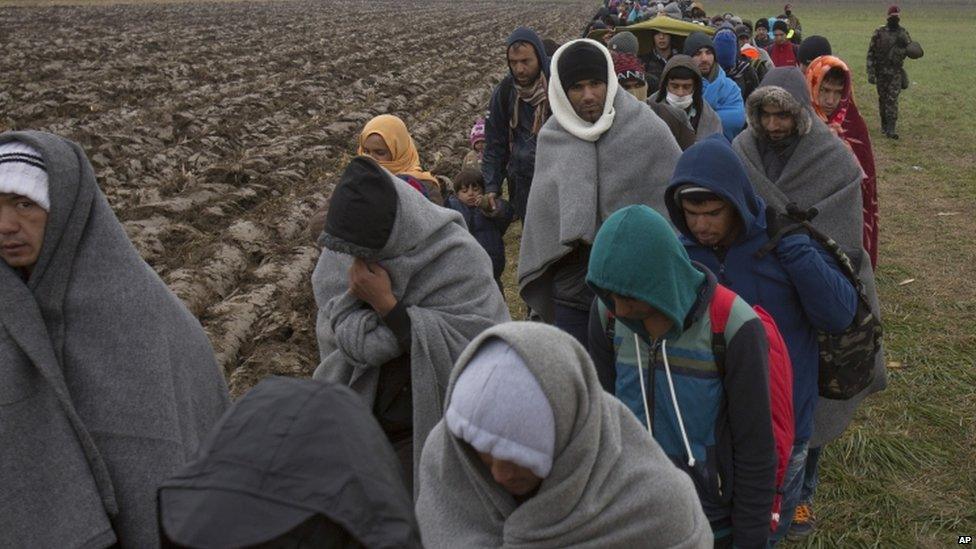Migrant crisis: Emergency talks on Balkans under way
- Published
The BBC's John Sweeney gives a tour of a refugee crossing point on the Serbia-Croatia border
Leaders from several European countries are holding an emergency meeting to try to close sharp divisions on the migrant crisis in the Balkans.
A draft statement calls on countries to stop waving through migrants without the agreement of their neighbours.
Slovenian PM Miro Cerar warned that the EU would "start falling apart" without concrete action on the crisis.
But his Serbian counterpart Aleksandar Vucic played down the prospects of a deal.
"I'm not sure that we're going to conclude something that will be very helpful immediately," he said, adding he was sure the countries involved would be able to overcome "blame games".
Ten EU and three non-EU states are taking part but the absence of Turkey at the summit has been questioned.
"Today the discussion will be among the countries along the corridor of the refugee flows," said Greek Prime Minister Alexis Tsipras.
"But everybody knows at the end of the corridor there is an entrance."
The draft leaked ahead of the meeting calls for the "gradual and controlled" movement of people through the migration route.

It also proposes to bolster EU patrols at Greece's borders and to send 400 extra guards to Slovenia.
Germany Chancellor Angela Merkel said the refugee crisis could not be solved without the help of Turkey.
Balkan bottlenecks
Hungary closed its border with Croatia last week. As a result, Slovenia saw 58,000 arrivals in the week leading up to Saturday, and many people are waiting in wet and cold conditions.
"We will not be able to endure this for weeks if we do not get help," said Mr Cerar, arriving for the summit.
The Slovenian government has accused Croatia of deliberately dumping thousands of migrants on the border.
Croatia says it has no choice because Slovenia is allowing far fewer into the country than it should be.
European Commission President Jean-Claude Juncker, who called the meeting in Brussels, told German newspaper Bild, external: "Every day counts."

The rate of people arriving on to Greek islands is at its highest this year

Night-time temperatures on the Croatia-Slovenia border dropped to close to freezing point over the weekend

But thousands have still been trying to reach Western Europe
If no agreement is reached, he added, "we will soon see families in cold rivers in the Balkans perish miserably".
Fears of Germany and Austria closing their own borders have led Bulgaria, Romania and Serbia to threaten to do so.
Bulgarian Prime Minister Boyko Borisov said the three countries would not "become buffer zones".
The International Organization for Migration said that more than 9,000 migrants arrived in Greece every day last week, external - the highest rate so far this year.
Most of the migrants - including many refugees from the conflicts in Syria, Iraq and Afghanistan - want to reach Germany to claim asylum.
Germany says it expects to take in 800,000 asylum seekers this year.